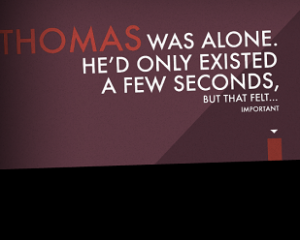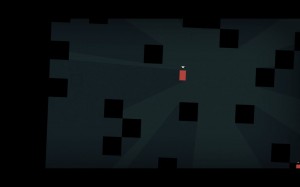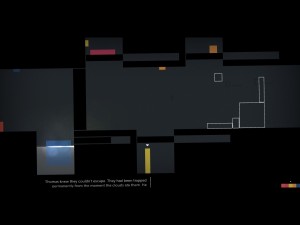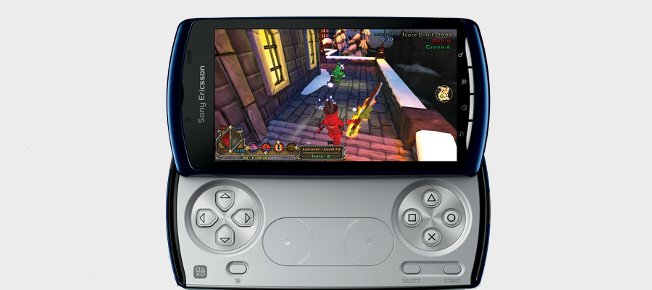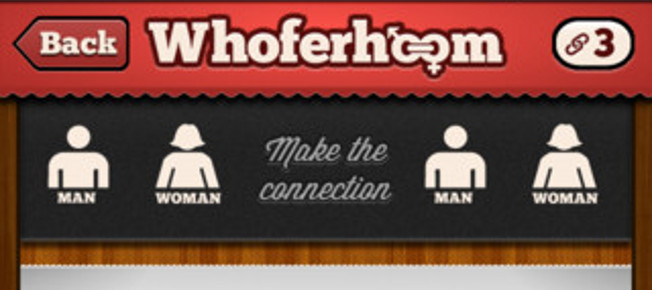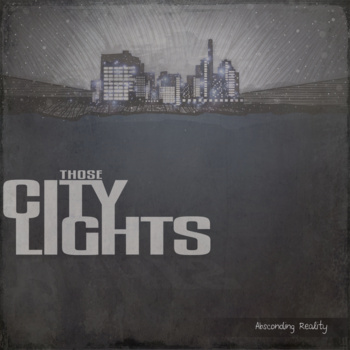This week sees the release of the highly acclaimed indie title, Thomas Was Alone, to the PlayStation 3 and PS Vita. With new features including; new characters, running commentary, 60 fps and 1080p HD, DLC exclusive to the PS store and new music.
The new characters are Benjamin (who has a jetpack) and his father, Anna, plus a returning character from the original game. This all ties in as a prequel to main story of Thomas with twenty new levels – about a 5th the size of the original game – and will be available as DLC. Danny Wallace – who received a BAFTA award for his role – returns as the narrator of the story for the new DLC as well.
The game will run at 60 fps and 1080p due to the work of Curve Studios, who took the task of porting the game over to the PlayStation systems. It looks fantastic, with Benjamin’s jetpack releasing a gorgeous smoke/particle effect as he flies across the stage.
The controls feel tight and anyone who played the original with the Xbox 360 controller will immediately grasp them. The same also goes for the Vita, with the game coming across like it was built for the handheld in mind.
I was fortunate enough to meet up with Mike last week to talk about Thomas – but also to talk about the indie development scene in general as well.
How important do you think it is that Sony is now looking at the indie gaming scene as a viable source for them?
Mike Bithell: It’s massive. We entered this generation a very different culture from what is now the case. Mid-sized teams made games, and every now and again a team of hundreds and hundreds of people would release a mega blockbuster AAA game. What’s happened over this generation is that the AAA games are still there – and they are making more money then they ever did – especially as more people buy the consoles and the market widens. So that’s still there, Call of Duty and Assassins Creed are doing very well. But that middle ground, those games made by 50-100 people have kind of fallen off, there’s not so many of them.
And what you are seeing is these indie games that are coming up, where say five years ago you had World of Goo, which was made by two people – and that was the norm. And so people like me saw that and thought, “I could give that a go”, and so we are in that second or third generation of indie games where people like me are trying this model. But we are also seeing the guys who made those older games like Edmund McMillen, who have a bit more money and are making bigger games, so they are growing up and becoming bigger companies. So within the indie space, it has taken up the space where the mid-sized teams used to be.
So what Sony have realized, is that while you are still going to be seeing your big AAA games, the indies are the people that could potentially be filling in the gaps throughout the rest of the year. We have an audience where we can fill in the space. Also indie games are performing very well on PC. Thomas was Alone – while no means the biggest success story – has still done surprisingly well, and that doesn’t go unnoticed. I just think the industry has changed.
Do you think there is a stronger relationship between indie developer and player – compared against the bigger companies?
MB: Well this is something that AAA tried. Cliffy B was a designer in a company and they thought, “We need a rock star. You’re good looking!” They tried to do this, and some have been successful to an extent; you’ve heard of Levine, Cliffy. With indie, that is kind of by default. And it seems to be working out that even if you are not likable you can still become notorious. And I do feel I have players that have a loyalty to me that they might not have with other games. You don’t go into a shop and buy Bioshock because you want to support them – you just buy it for the game, whereas that is the case a lot of the time in indie.
Do you see a point down the road where you will be finished with Thomas was Alone?
MB: I don’t know is the quick answer. With this PS3/Vita port, it was cool to go back and fiddle with new stuff. The game will probably keep selling for a bit more. There might be DLC at some point, or a sequel. For me though, I feel this is the definitive point of the game now. Adding much more to it would feel wrong and feel bloated.
One of the things I wanted to do from day one was running commentary. DLC was a cool way to fix a character I didn’t like in the original game, so I get to go back and re-write history for the character I originally wanted them to be.
I think it might be the ending point for it. Basically, if I do something else with it, it will just be to make it more awesome. But I’ve just gone indie. If I now go indie and start churning out sequels every year I’ve kind of missed the point. The new project I’m working on is completely different to Thomas. There are some links, but its new gameplay, new ways of telling stories, because I have the freedom to do that.
Compared to where both the indie and YouTube gaming community is from when Thomas was first released, will you be giving the game to many of the YouTube channels and letting them do the free advertising for you?
MB: There are people that I have an established relationship with. I’m lucky in that journalists, generally, seem to like me, so there are people that I can send stuff to. And I know that when the game is released they will tweet about it, because they know this is a small team and we need all the help we can get. But this is where Dave (ed – David Miller: Senior Marketing Manager at Bossa Studios) comes in.
David Miller: The great thing about being a hit already on steam, is that it falls into the category of being a game that if major publications didn’t get a chance to play it first time round – are now telling us how happy they are it’s coming to the PS3. So we know it’s going to be reviewed in all the majors and the Playstation press.
MB: It was a slow burner originally. And someone like Total Biscuit – who had an enormous effect on the game – he didn’t talk about the game until about six month after it had come out. So it slowly built up, but it’s at the point where lots of people will now be talking about it.
DM: It’s sort of the antidote to Activision releasing a game and throwing a massive party, with a load of Coronation Street actors there.
MB: I think Danny (ed – Danny Wallace: British filmmaker/presenter who narrates the game) has been on Coronation Street! I’m not sure he has, it’s the kind of thing he would have done. (ed – I looked this up – he hasn’t.).
DM: When you find out about something that has grown organically, that’s been developed with love… We were discussing over lunch “what makes an indie studio/game?” And Mike had a nice way of putting it: that an indie game is a game someone wants to make and not a game someone is told to make, because it has to hit the line on a balance. And you go to a party for one of those big games – and it is a pretty soulless experience. But every once in a while you get a project like this and everyone gets behind it, and people want to write about it. And with Curve Studios behind it as well now, it’s even better.
MB: It’s definitely been weird for me. It’s something that was genuinely a hobby game for me and now I’m here doing this, and I don’t understand how it happened. And we’re hoping to win over a whole new crowd now. There’s a whole bunch of people who have never heard of this game, so I’m quite excited to see how this new audience will react to it.
Do you think that the PC audience is more accustomed to a game like Thomas and do you have any expectations about feedback/response from the Sony market?
MB: Well first of all, I’m very grateful that Journey exists. I think that Journey has brought in a whole new audience that before wouldn’t have played a game without guns in it.
Do you still have people say, “It is just rectangles”?
MB: Oh yeah, absolutely. I still get “I’m lazy”, “I’m an idiot”, but that all gets a lot easier as the game sells more copies – so I mind less and less. That’s such an arrogant thing to say (laughs).
I have my headline sorted.
MB: (laughs) Yeah, “the next Phil Fish.” I think that people are ready for it, and of course there will be people that are skeptical. But that’s where the coverage for it will help, and there’s a lot of goodwill that has been built up with the game. I would very much like to see the game do as well as it did on PC. There has been some indie stuff on the Sony platform like Journey, Papa & Yo, and The Unfinished Swan, which may have made people more aware of the indie scene.
Perhaps that has made Sony more aware as well?
MB: It might have. I think Shahid (ed – Shahid Kamal Ahmad: Sony) was born loving indie games. But I think within Sony, it might have made Thomas an easier sell perhaps. I think console has taken a little bit longer – because it’s not as open a system, but I think people are getting use to the idea. Thomas is coming in at £6, and you know… has Danny Wallace.
Thomas Was Alone is released this Tuesday 23rd April in America as part of the PS Store’s Spring Fever promotion for $9.99, and the following day in Europe for £5.99. You can also follow Mike on twitter.
© 2013, The Indie Mine. All rights reserved.

